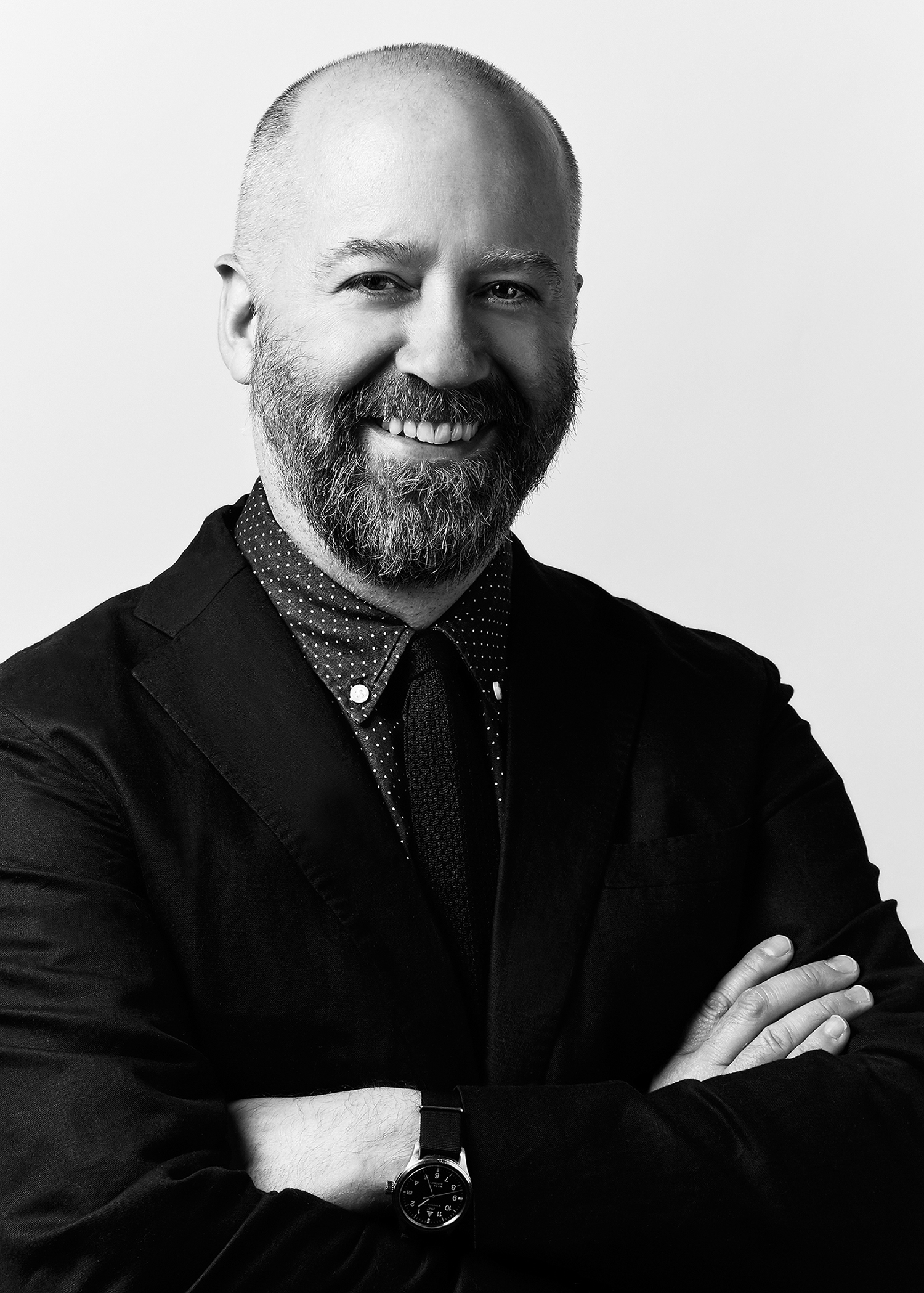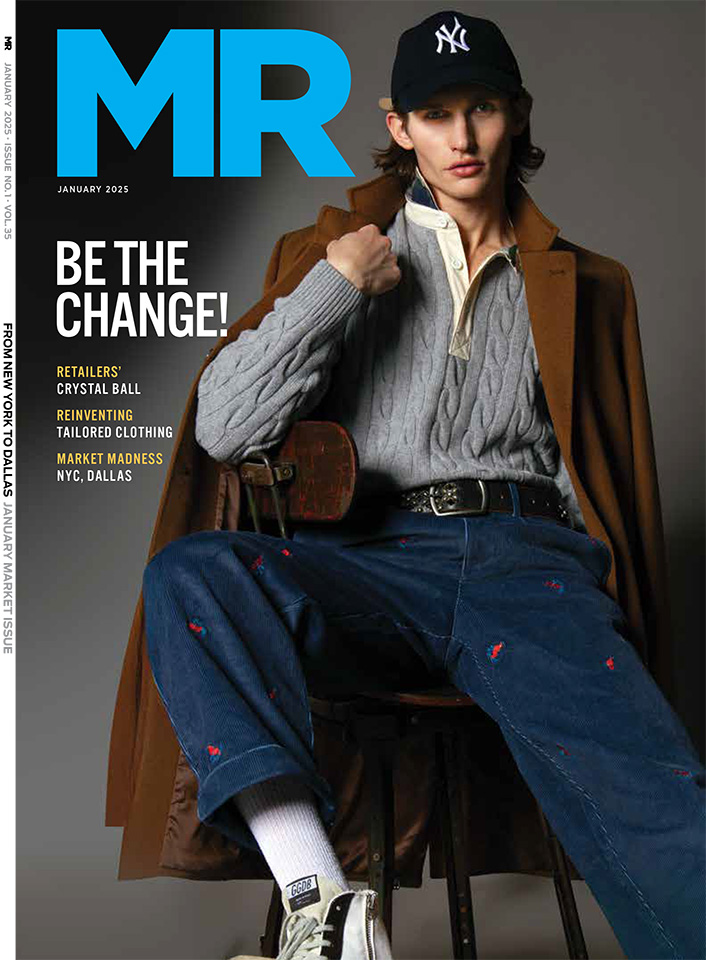Harry Rosen: The Canadian Edge

Uptown/Downtown Awards — 10 Most Influential Retailers
Harry Rosen is one of the best retailers in the world, and it just happens to be in Canada.

To what do you attribute all of your success?
We have a cadre of long-term people who have grown with us and are so important to our organization. If you look at our top 20 people, you would have over 400 years of Harry Rosen experience. However, we aren’t a place full of oldies—some are quite young. We have people who have been here 16, 17 years who are in their mid-30s. We also have the ability to bring in young new talent and blend it with our team to give us a fresh edge.
My father has always been my inspiration. He’s 82 and just as dynamic and creative as ever. I love going to him for ideas. He established a culture and vision for this business: it’s a passion for quality and high-end fashion whether it’s Canadian or international. We consider ourselves clothing advisors, not sellers. I would call it very similar to what Mitchells does. It’s that passion for exceeding customers’ expectations and earning their trust. I joined 29 years ago, but that was well ingrained by then and my job has been to steward it on.
Can you talk about some of your team?
EVP of merchandising Jeff Farbstein is a real visionary who has helped differentiate us. We don’t consider ourselves buyers; we’re curators who go around the world and find great ideas and present them to our market with our own point of view. He leads a team that does that brilliantly.
Our EVP of operations Manuel Maciel has to make sure more than 700 sellers across the country deliver relationship-based advice and get them all trained—this is something that I admire tremendously. I don’t believe there’s a business out there that spends as much per associate on training as we do. They’re well trained in product, fitting and service.
What’s your feeling about commissioned sellers?
Commission in isolation can be a destructive force. If the culture is firmly established in the company and it’s managed with the understanding that we’re here to earn clients‘ trust and make long-term customers, it can be a positive force. We do that and do that well. It keeps people motivated and rewarded for their efforts. Our team in the store understands that it’s not about maximizing the sale today, it’s about maximizing the value of the relationship over time.
Is Harry Rosen a uniquely Canadian retailer?
We’re a uniquely Canadian answer to our marketplace. All our people in management are Canadian and we understand this country and its diversity. We’re as Canadian as ice hockey and maple syrup. And we say ‘eh’ a lot. However, we’ve never thought of ourselves as having a Canadian standard. Our report card has always been how we rank internationally.
Why is it so hard for American retailers in Canada? Do you think Saks and Nordstrom have learned anything from your success and the failure of some of their more moderate American counterparts?
It’s very easy for a retailer to assume the markets are similar. Even within Canada the markets are different. I’m not saying they won’t learn, but there’s this presumption that a lot of companies entering Canada from the U.S. have: ‘We’ll teach them.’ It’s not an approach that works. Look, I’d prefer not to have more competition. But they’re going all the places I am and they’re making the centers that we occupy much more powerful by their addition. As a result, they’ll be bringing more traffic to us. So we’ve been working to make sure all of our stores are up to date and dominant in each marketplace.
And not all the competition is from outside—Holt Renfrew is opening a new men’s store.
They’re moving their menswear into a free-standing 14,000 sq. ft. store that’s actually located just across Bloor Street from our 54,000 sq. ft. flagship. I think we will continue to be the dominant player. But listen, competition is a reality. People talk these days as if competition is a new thing. We’re always facing new competition. My father told me this: it’s not good enough to be the best in Canada, you have to be the best in the world, and we’ve always made that our mantra.
Let’s talk about some of your projects.
We’re in the most aggressive capital phase in our history. Last year and in the next three years we’ll invest more in upgrading and expanding than we ever have. We just finished [doubling the size of] our Yorkdale (Toronto) store, which is 32,000 sq. ft. of state-of-the-art flagship retail, and it’s doing extremely well. It’s running 40 percent above last year, and it did huge volume then. This fall we’re opening an expanded store in the Chinook Center in Calgary. We’ve had a store in Ottawa since 1983 but we’re moving it. It’s going to be an 18,000 sq. ft. beautiful new store, and I might add that it’s opening just before Nordstrom opens there. (We’re doing that everywhere.) In downtown Montreal we’re almost doubling the size of our existing store for fall of 2015. And we’re going to be opening a 24,000 sq. ft. flagship in Western Toronto in a place called Sherway Mall which will open before Saks and Nordstrom. And our Pacific Center store in Vancouver will be redone next year.
Is this expansion a response to natural market growth or is it in anticipation of new competition?
I think it’s a combination. Our customer is attracted to a dominant store. He wants the selection, he wants to know that he’s in a one-stop shop. We know the market’s changing and we want to make sure that the best possible Harry Rosen store is in each of the seven major markets in Canada.
Plus, we’re very aggressively investing in online. We’ve been in e-commerce for five years and it’s a strong and growing part of our business. We see the online portal as a source of business and marketing and it’s also a point of research for many of our customers. We’re on Facebook, Twitter and Instagram and we’re constantly posting. At the end of the day, people under 40 get their information online. It’s a critical part of any communications strategy.
Speaking of men under 40, how else are you getting younger men in the store?
In the late ’90s, I attended a lecture by Canada’s most famous demographer, and it became very apparent to me that around this time the Baby Boomers would be going through the throes of retirement. I knew back then that we had to very aggressively bring in younger customers, so a decent chunk of our stores have always been set up for youthful fashion. We’re constantly bringing in new ideas and new lines. Jacob Cohën and John Varvatos have been very strong for us, as have the more advanced Burberry lines. We do well with Etro, Dolce & Gabbana and Moncler—we make sure we’re the destination for youthful ideas in fashion. We always say our average customer age should never go above 38, because if it is, the Baby Boomers are dragging our average up. We have to constantly replace customers because as a man retires, he tends to spend less. We have an event called the Underground Lounge, inspired by Varvatos, where we bring in indie bands to play sessions in our store. And we have networking events for people in their 20s.
What categories or items are doing well right now?
For the last number of years, outerwear has been very important. We’ve had tremendous growth with brands like Canada Goose, which is a home-grown company I’m very proud of, as well as Moncler. Also, our shoe business has gone through the roof in the last three to five years. We’ve established ourselves as the important shoe player in this country, and in fact, our Ottawa store will be the first to have a shoe store with its own street entrance.
Do you see men’s fashion heading in a particular direction right now?
Today’s man has progressed from the old days when he had his suits for work and his jeans for weekends. He’s so much more eclectic today. His wardrobe reflects the number of situations he finds himself in: he needs a formal black tie wardrobe, a dressy suit, business casual, elegant casual and weekend casual. Women have always been sophisticated in their understanding of the different wardrobe needs. Men are catching up, and I see it only intensifying.
Larry Rosen: Getting Personal
Inspirations: My biggest inspirations are my father, obviously, and the Mitchell family. Jack, Bill and Russ—they inspire me. We’ve worked so closely with them over the years and we try to help each other when we can.
Hobby: I play an electric guitar and I have buddies I like to jam with. I still take lessons every week. I have a great custom Fender Stratocaster (I’m left-handed). We play a lot of blues and rock.
Travel: I just got back from Turkey. Last year I went to Peru and Switzerland and the year before I went to Argentina.
Restaurant: Scaramouche in Toronto. I’m always on a diet so I’m always ordering fish. The salmon is brilliant.
Fitness: I’m a perpetual dieter. I’ve been losing weight as I’ve been gaining weight for the last 20 years. I exercise with a trainer three or four time a week and I spin. With travel and socializing, I find that I have to work out like a maniac and watch what I eat.
Currently Reading: Flash Boys: A Wall Street Revolt by Michael Lewis.
Movie: My favorite movie of all time is The Big Lebowski.
Harry Rosen in a Nutshell
Established: 1954 by Harry Rosen
Stores: 16 across Canada, averaging 25,000 sq. ft.
100% men’s
Breakdown: 35% clothing, 35% sportswear, 15% furnishings, 9% shoes, 6% accessories
Key Vendors: Giorgio Armani, Tom Ford, Ralph Lauren, Ermenegildo Zegna, Brunello Cucinelli, Dolce & Gabbana, Burberry, Canali, Isaia, Hugo Boss, Samuelsohn, Kiton, Eton, Salvatore Ferragamo
Event: Harry’s Underground Lounge is a consumer-focused event hosted seasonally in flagship stores in Toronto and Western Canada. It’s a thriving showcase of independent Canadian recording artists designed to appeal to a younger clientele, and highlight new sportswear offerings.
Charity: Harry Rosen supports the Princess Margaret Cancer Foundation through the annual Harry’s Spring Run-Off 5K and 8K, which has raised $3 million to date, and new this year, Harry Rosen’s Golf To Conquer Cancer. During the holidays, the Harry’s Giving Back event benefits the Children’s Miracle Network and Food Banks Canada.



